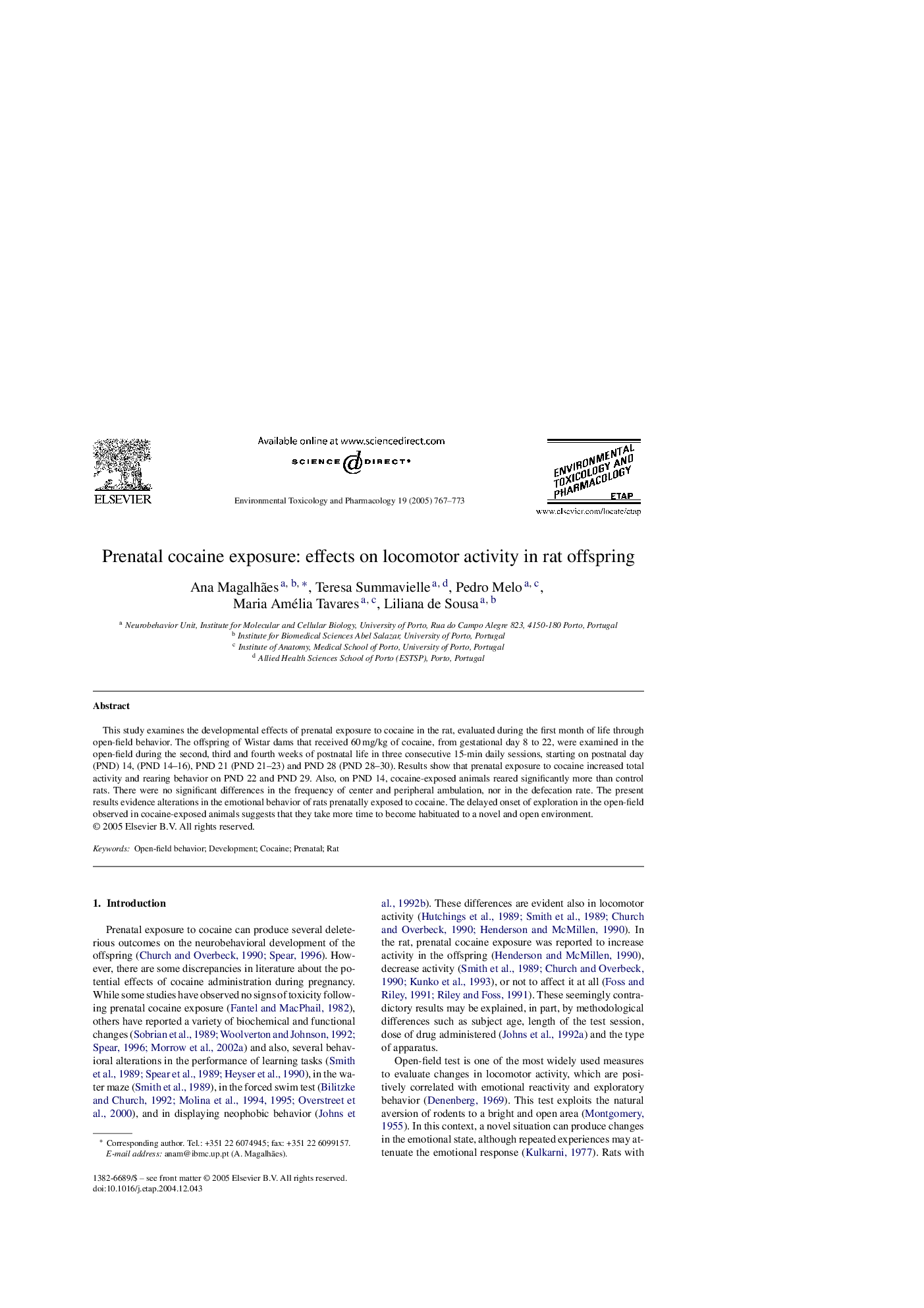| Article ID | Journal | Published Year | Pages | File Type |
|---|---|---|---|---|
| 9030110 | Environmental Toxicology and Pharmacology | 2005 | 7 Pages |
Abstract
This study examines the developmental effects of prenatal exposure to cocaine in the rat, evaluated during the first month of life through open-field behavior. The offspring of Wistar dams that received 60Â mg/kg of cocaine, from gestational day 8 to 22, were examined in the open-field during the second, third and fourth weeks of postnatal life in three consecutive 15-min daily sessions, starting on postnatal day (PND) 14, (PND 14-16), PND 21 (PND 21-23) and PND 28 (PND 28-30). Results show that prenatal exposure to cocaine increased total activity and rearing behavior on PND 22 and PND 29. Also, on PND 14, cocaine-exposed animals reared significantly more than control rats. There were no significant differences in the frequency of center and peripheral ambulation, nor in the defecation rate. The present results evidence alterations in the emotional behavior of rats prenatally exposed to cocaine. The delayed onset of exploration in the open-field observed in cocaine-exposed animals suggests that they take more time to become habituated to a novel and open environment.
Related Topics
Life Sciences
Environmental Science
Health, Toxicology and Mutagenesis
Authors
Ana Magalhães, Teresa Summavielle, Pedro Melo, Maria Amélia Tavares, Liliana de Sousa,
